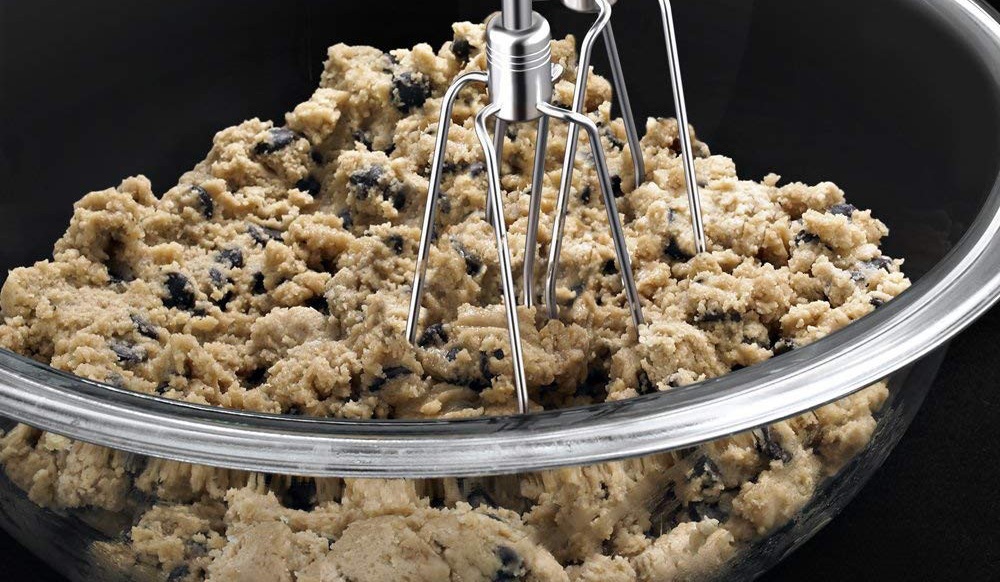When it comes to baking, having the proper tools and equipment to get the mixture right can make all the difference in the world. Mixing ingredients is part of the job of a baker, and this can be accomplished by the use of a hand mixer or a stand mixer. Each of these mixers has their benefits and drawbacks, and depending on the situation one method might be more useful for you than the other. In this guide, you will learn the benefits and drawbacks of each of these mixers so that you can have a better knowledge about which of the mixers will be more suitable for your needs.
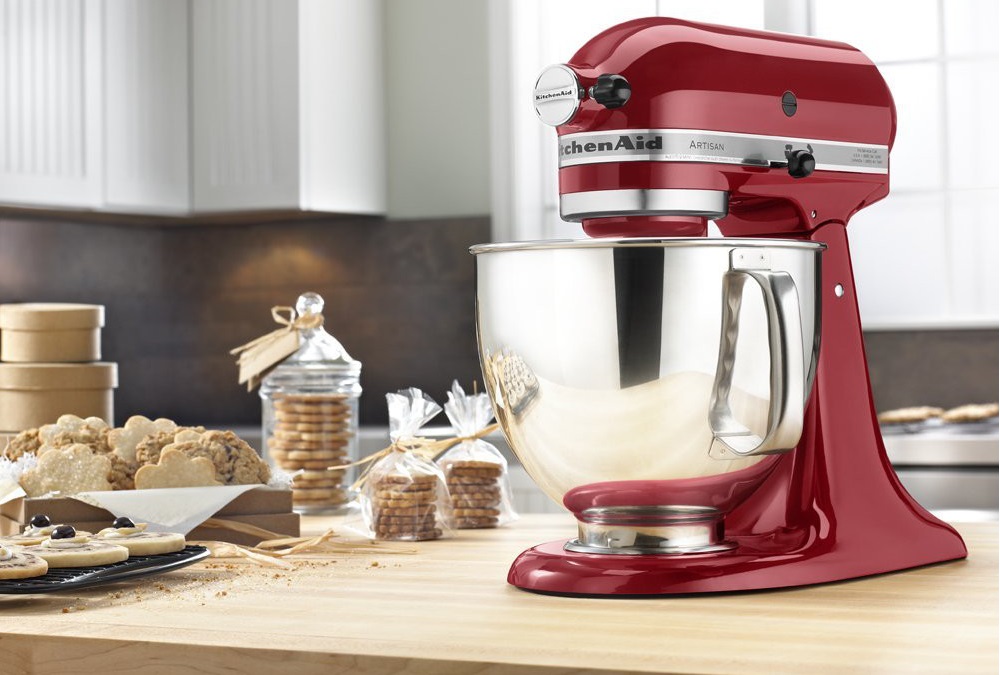
Why You Should Buy a Stand Mixer?
This mixer is a multi-tasking kitchen appliance best suited for tougher mixing tasks such as pastry, kneading dough, and other thicker mixes. The stand mixer has a fixed mixing bowl, and a stand with a lever operated arm on to which various mixing attachments can be fixed. The stand mixer works in a way that the mixer doesn’t only mix the ingredients in the middle of the bowl, it also moves around the bowl as the attachment rotates anti-clockwise for more thorough mixing. Stand mixers usually come with a large balloon whisk (for whisking and whipping), flat beater (for pastry and cake mixing), and dough hook (for bread).
There are some models that come with a beater which help to scrape any ingredients that is unmixed for an even mix. Also, there are some stand mixers that can accommodate a number of additional attachments such as food processors, mincers, jug blenders, and even ice cream maker. While they can be more expensive initially, they can double as a blender, food processor, and even more. Many stand mixer models also come with a splash-guard lid; this can be fixed over the mixing bowl and can help to keep the ingredients in the bowl rather than it splattering over your kitchen work surface or the stand mixer itself.
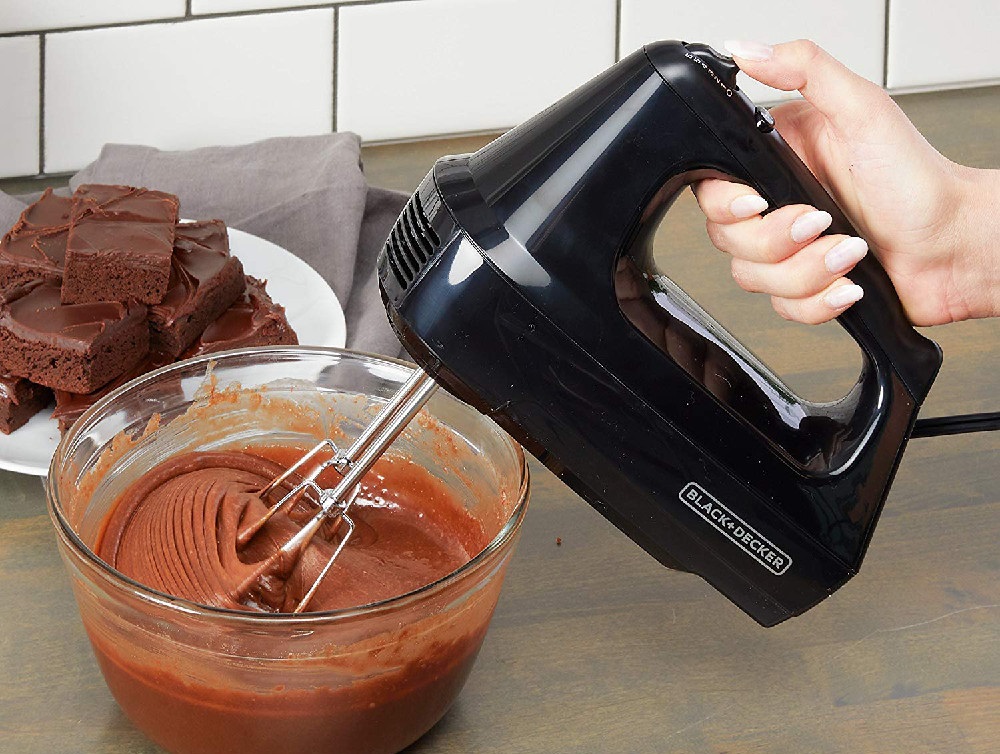
Pros
Mixing bowl included
Large attachments and bigger motor
No effort involved in mixing, you can leave it to mix while you get on with other things.
Cons
Expensive
They are usually larger and heavier than other mixers
Some stand mixer model struggle with very small quantities
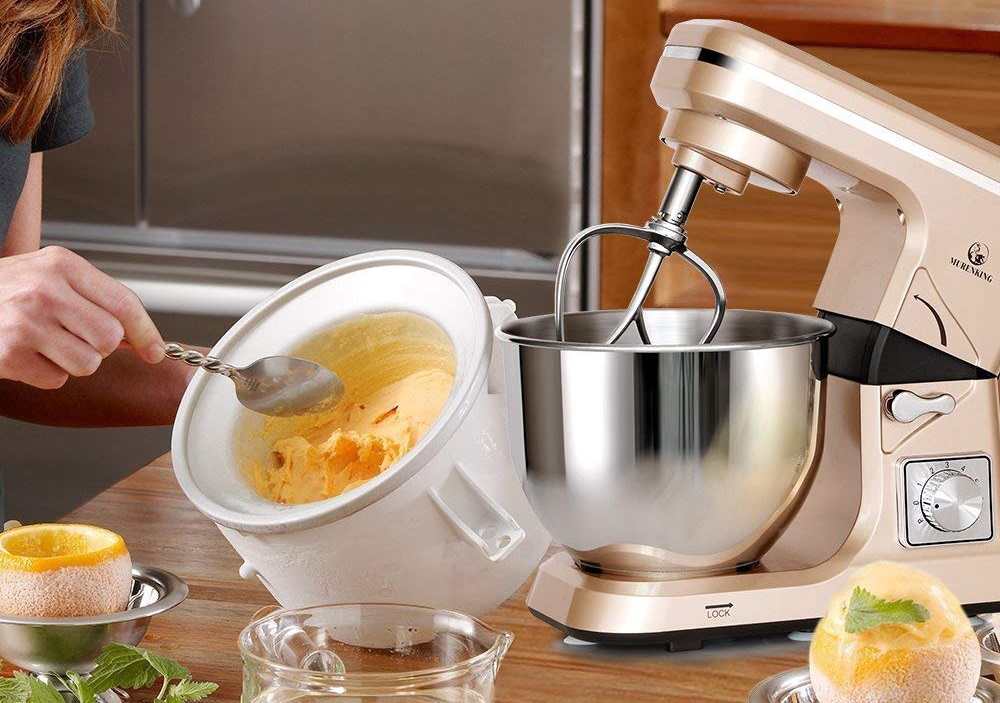
Would Hand Mixer Be Better?
A hand mixer could be a better option for you if you do not bake too often and only need to mix batter, whip cream, and whisk eggs. This type of mixer is a lot smaller than the stand mixer, so they will not take up a lot of counter space in your kitchen. Hand mixers mix in a fixed position, but you can move them around the bowl for an even mix. They are more labor intensive to use since you will have to hold and move it around when you are using it, this can be very tiring if you are doing intensive baking.
Cheaper hand mixer models include only a basic flat beater as attachments, but the more expensive ones include additional attachments such as a dough hook and balloon whisk. There are limits on the volume of dough some models allow you to mix or how long you can mix for. The speed setting on hand mixers is usually around five while it can be more than 10 for stand mixers. You will need a deep mixing bowl when you are using a hand mixer, and it can be hard to prevent the mixer from splashing the ingredients since there is no splash guard.
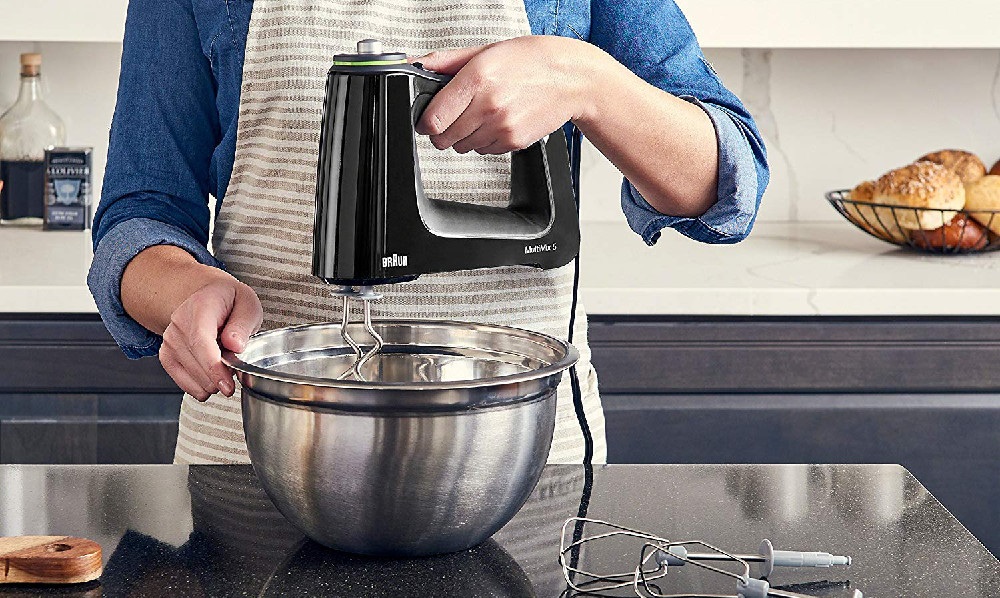
Pros
Small and cheap, easy to store
Good for small occasional baking tasks
Cons
More tiring to use
Can’t do a lot of tasks
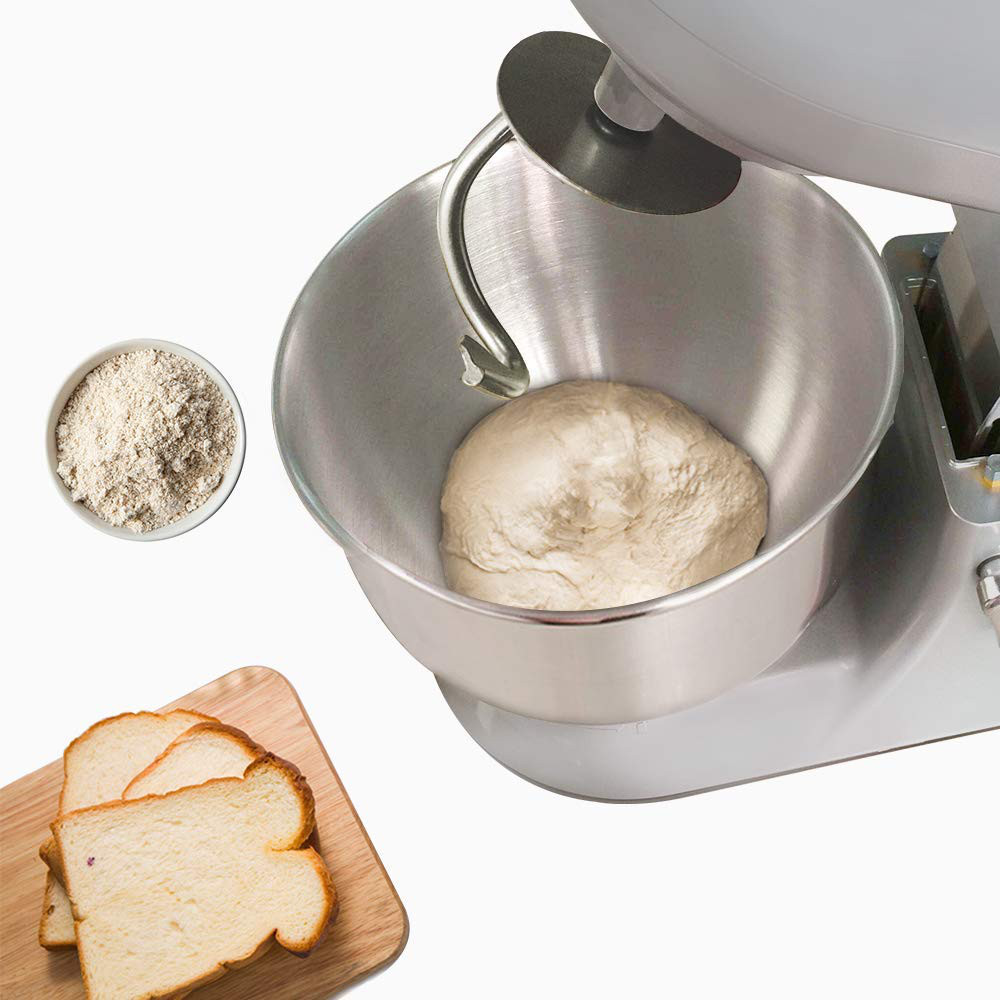
What About a Hand Mixer on a Stand?
This type of mixer is the halfway point between a stand mixer and a hand mixer. If you don’t want to hold a hand mixer for a long period of time and you don’t want to invest in a full stand mixer, then the hand mixer on a stand is for you. Hand mixers on a stand usually have a detachable hand mixer which can fit on a stand with a bowl. They are also cheaper than stand mixers, and they are not as effective with mixing all your ingredients thoroughly. Just like hand mixers, they have fewer speed options, and you won’t get the same range of attachments like a stand mixer.
Before selecting one of these mixers for yourself, make sure you determine your mixing frequency and mixing need, this will help guide you toward the type of mixer that suits your needs best.
